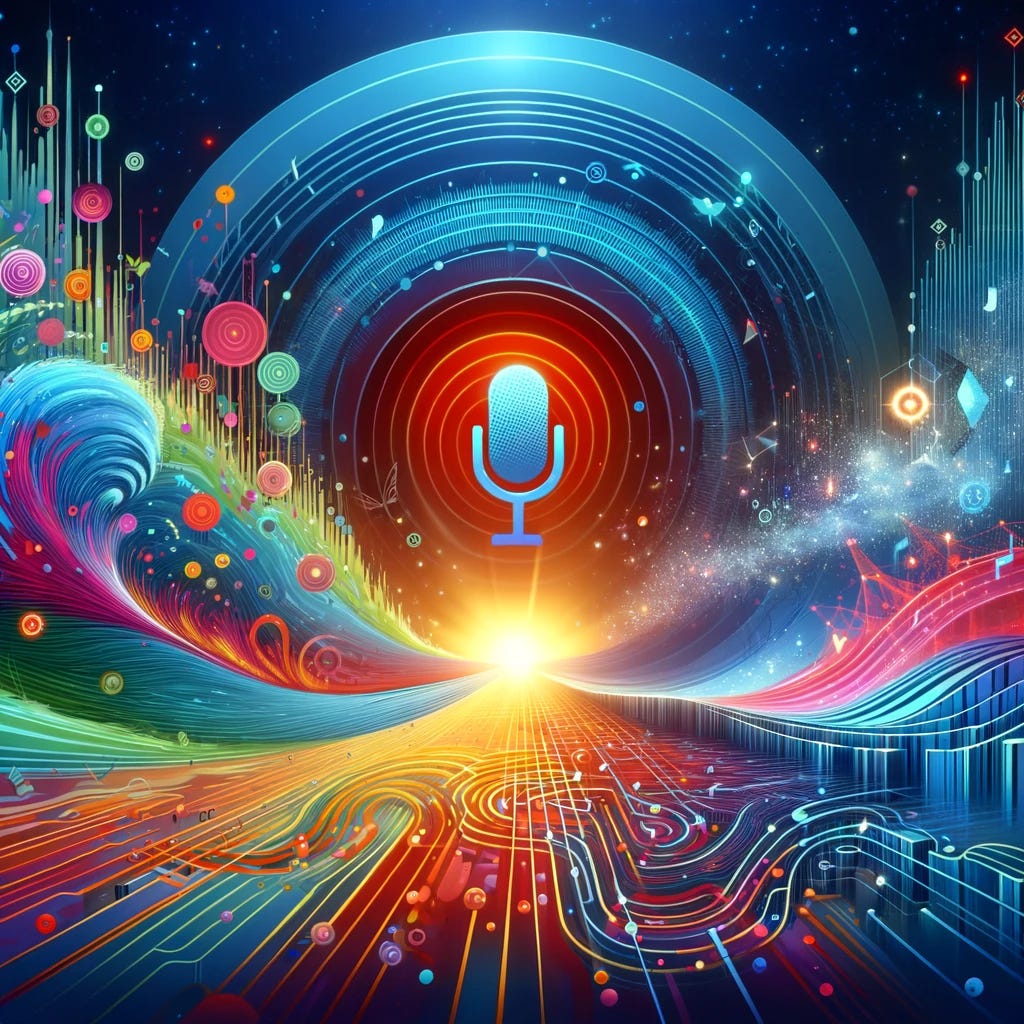The Dawn of Voice Cloning: OpenAI's Cautious Approach
The Dawn of Voice Cloning: Music for My Ears.
The Dawn of Voice Cloning
In an era where digital innovation blurs the lines between the real and the artificial, OpenAI has introduced Voice Engine, a testament to the burgeoning field of voice cloning technology. As we navigate the intricacies of this development, it's crucial to understand both its potential and pitfalls. OpenAI's cautious approach to releasing Voice Engine underscores a broader debate on ethics, copyright concerns, and the future of voice talent in the age of AI.
Refining Voice Technology Responsibly
OpenAI's Voice Engine marks a significant leap forward in text-to-speech technology. By uploading a mere 15-second voice sample, users can generate a synthetic copy of any voice. Yet, the absence of a public release date hints at OpenAI's deliberate pace, prioritizing safety and ethical considerations over rapid deployment.
This development extends OpenAI's portfolio, complementing the voice capabilities already present in ChatGPT and its text-to-speech API. Notably, platforms like Spotify have adopted this technology, demonstrating its versatility and broad applicability.
The Backbone: Training Data and Copyright Concerns
At the heart of Voice Engine lies a complex web of training data, a blend of licensed and publicly available sources. This aspect of AI development remains shrouded in secrecy, primarily due to competitive and legal concerns. OpenAI's careful navigation through copyright laws and licensing agreements highlights the delicate balance between innovation and intellectual property rights.
The company's stance on the necessity of copyrighted material for AI model training, shielded by fair use doctrine, sparks a dialogue on the evolution of copyright laws in the digital age.
Beyond Cloning: Ethics and Application
Voice Engine's potential extends beyond mere cloning. Its design emphasizes user privacy and the temporary use of audio samples, ensuring that the generated speech reflects the nuances of the original voice without retaining personal data.
Despite the lack of novelty in voice cloning technology, OpenAI aims to set a new standard in quality and affordability. However, the implications for voice actors and the broader talent industry cannot be overlooked. As AI-generated voices become more accessible, the role of human voice talent faces unprecedented challenges and opportunities for adaptation.
Navigating Ethical Waters: Deepfakes and Misuse
The ethical dilemmas surrounding voice cloning technology are manifold. The potential for misuse, from spreading disinformation to impersonating individuals, raises significant concerns. OpenAI's cautious strategy, involving a limited release and stringent use case criteria, aims to mitigate these risks.
Moreover, watermarking techniques and red teaming efforts reflect OpenAI's commitment to security and ethical responsibility. Yet, as the technology evolves, so too will the strategies for its misuse, demanding continual vigilance and innovation in safeguarding ethical use.
Looking Ahead: The Future of Voice Cloning
As OpenAI evaluates the feedback from its preview release, the future of Voice Engine—and voice cloning technology at large—remains open-ended. The company's exploration of security mechanisms and the potential expansion to a broader developer base indicate a forward-looking approach, balancing innovation with caution.
The unfolding narrative of voice cloning technology presents a microcosm of the broader challenges facing AI development: advancing human potential while navigating the ethical, legal, and societal implications of these powerful tools. As we stand on the brink of this new frontier, the path forward demands not only technological prowess but also a deep commitment to responsible stewardship.






